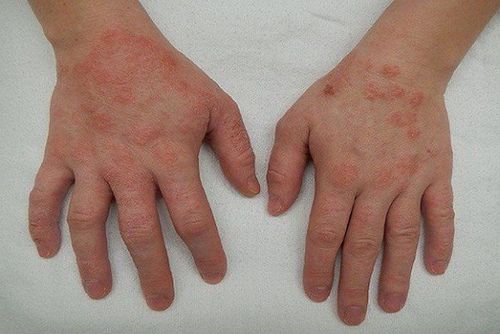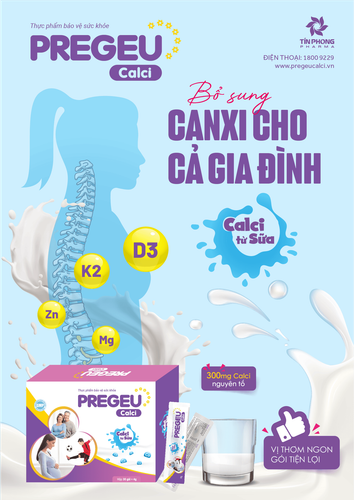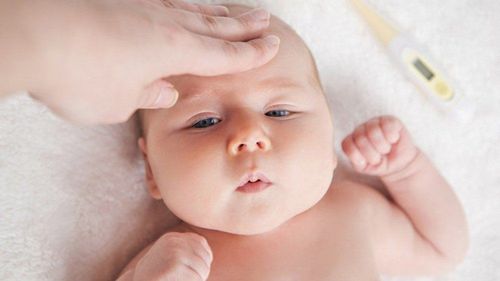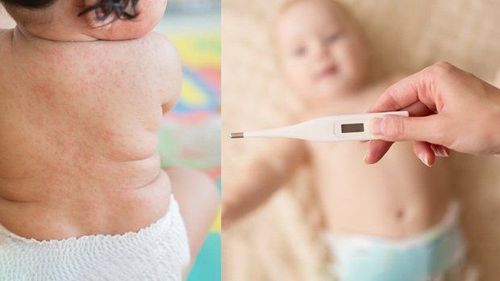This is an automatically translated article.
The article was professionally consulted by Master, Doctor Ho Thi Xuan Nga - Cardiovascular Center - Vinmec Central Park International General Hospital.High fever is common in young children. One of the problems that mothers often worry about is that when their baby has a high fever, they may have a convulsion. So what do you need to do to be ready to handle this situation?
1. What do you need to prepare in the medicine cabinet?
All mothers with young children should have a family medicine cabinet and keep it out of reach of children. In it, it is necessary to have a thermometer (mercury or electronic is fine - depending on mother's preference).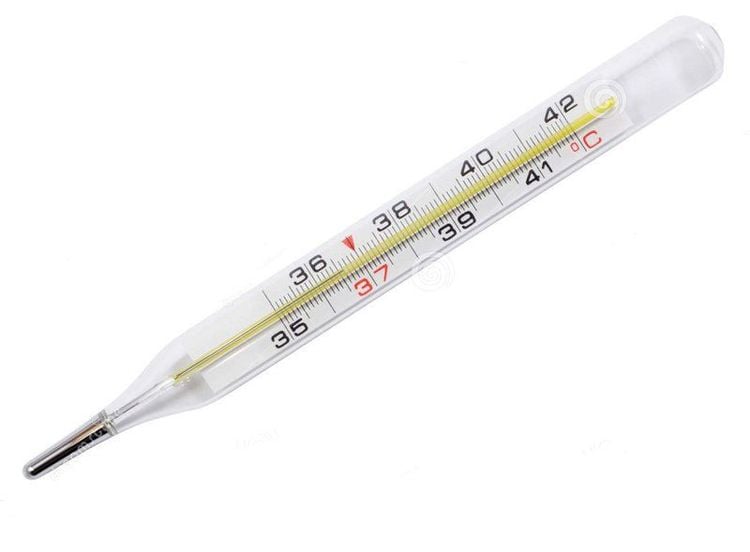
Trong tủ thuốc gia đình nhất thiết cần có một nhiệt kế.
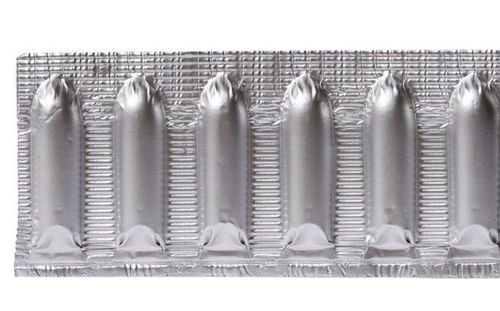
Các bà mẹ nên có sẵn trong nhà 4-5 viên “đạn dược” với các hàm lượng khác nhau tùy vào cân nặng của con mình.
Children have fever due to many causes: viral infection, bacterial infection, teething, after vaccination/vaccination,... But whatever the cause, mothers must first determine clearly: Does the baby have a fever or not? Not by touching, measuring the temperature with a thermometer.
Locations where the thermometer can be placed: Armpit, anus.
A child's normal body temperature ranges from 36.5 - 37.5 degrees Celsius depending on the weather, clothes, ... the child is wearing. When the thermometer is just outside the upper limit, mothers should pay attention to the child's onset of fever (> 38.3 degrees Celsius if the armpit is considered a fever).
2. How much high fever can lead to convulsion?
Regardless of the cause, when a child has a fever, the thermoregulatory center in the child's brain (roughly an air conditioner) will work to increase heat loss, bringing the body temperature back to normal. The heat-dissipating activity of this apparatus will cause the child to dilate blood vessels, sweat, and lose water. If the temperature continues to rise beyond the control threshold of the apparatus, the child will be affected to the brain area, causing a state of convulsion when the fever is high (usually above 39.5 degrees Celsius).When convulsing, the child completely loses control, the jaws tend to bite tightly. Therefore, in teething children, it is very easy to damage the tongue.
3. 10 steps to handle when a child has a high fever and convulsion
The first thing that mothers need to pay attention to is to calmly do the following steps:Let the baby lie on his side, in a cool place, do not wear tight clothes, do not cover blankets. Use a tongue depressor when the baby has had a convulsion and has bitten his jaw tightly, do not put the tongue press too deep inside to cause vomiting, avoid rough movements that cause broken teeth, bleeding, and bruised lips. If the child is not biting his jaw, there is no need to do this. Absolutely do not pour any drinking water or medicine into the child's mouth while having a convulsion because the child will easily choke on the airway. Call the helper to get antipyretic medicine (ammunition) put it in the refrigerator (freezer), wait 1-2 minutes, remove the cover and stuff it for the child. Dosage by weight: 10 - 15 mg x body weight. For example: Children 5 kg, the highest dose can be given is 75 mg (Can take 1 tablet of 80 mg or 1/2 tablet of 150 mg). Ammunition has types of 80 mg, 150 mg, 300 mg, ... You should buy ready according to the weight of your child.
Cool wipe: In case the child has a fever as high as 39 degrees Celsius, the mother should combine putting medicine, wiping cool and giving the child water to drink (if there is no convulsion). When wiping, should use warm water about 34-35 degrees Celsius (do not use cold water, ice) dip a towel in water to cover the baby's forehead, armpits, and groin, change the towel every 5-10 minutes .
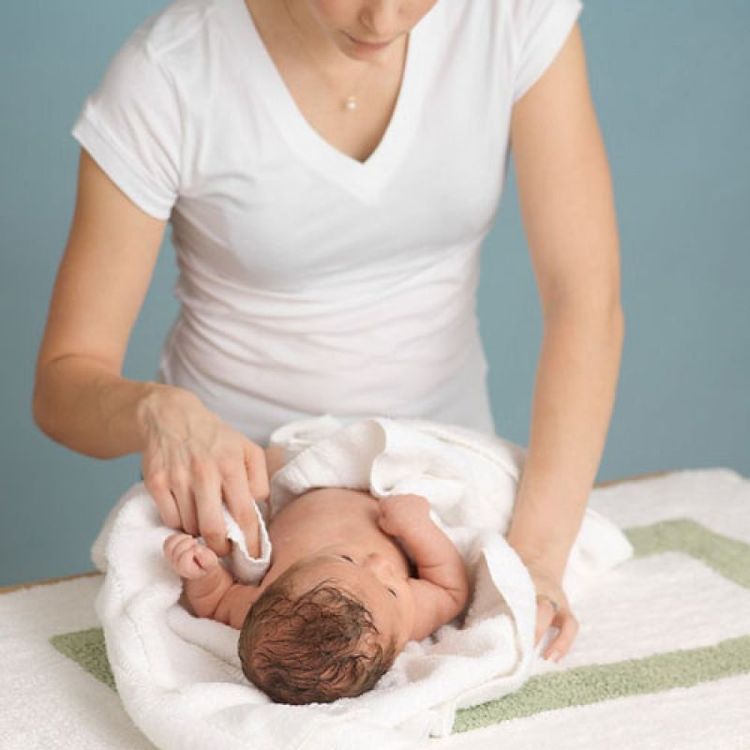
Trường hợp trẻ sốt cao đến 39 độ C mẹ nên kết hợp giữa nhét thuốc, lau mát và cho trẻ uống nước.
Please dial HOTLINE for more information or register for an appointment HERE. Download MyVinmec app to make appointments faster and to manage your bookings easily.




